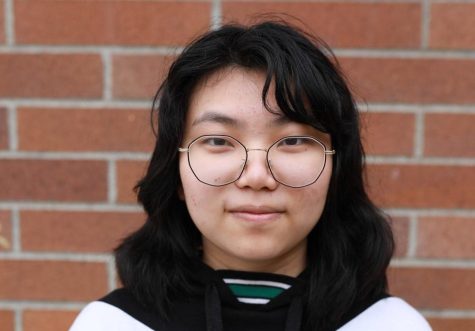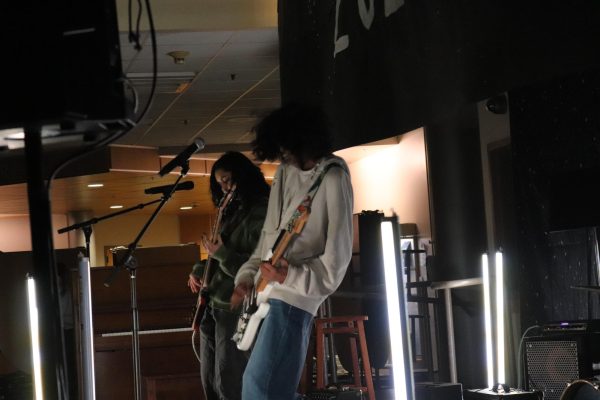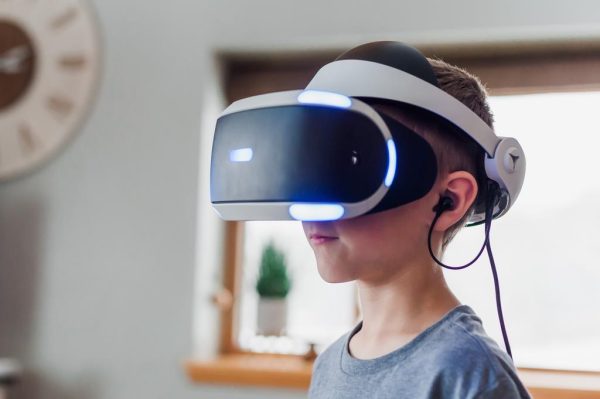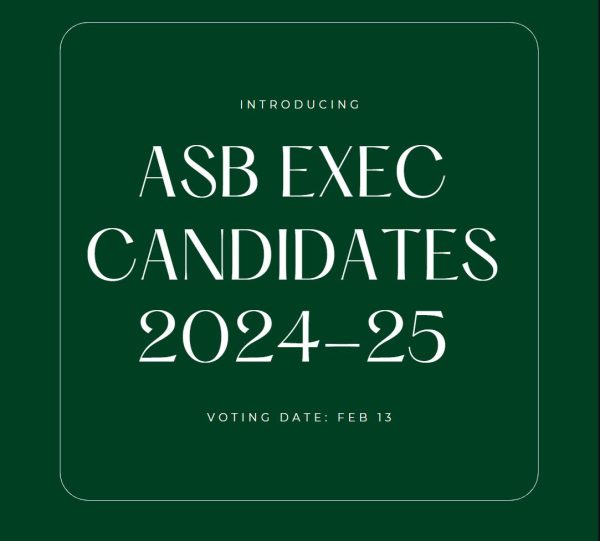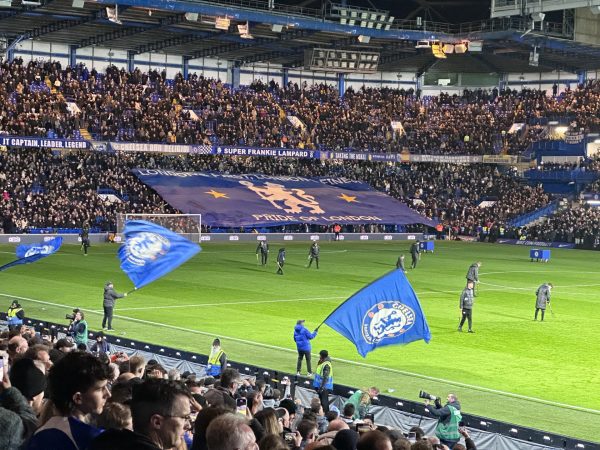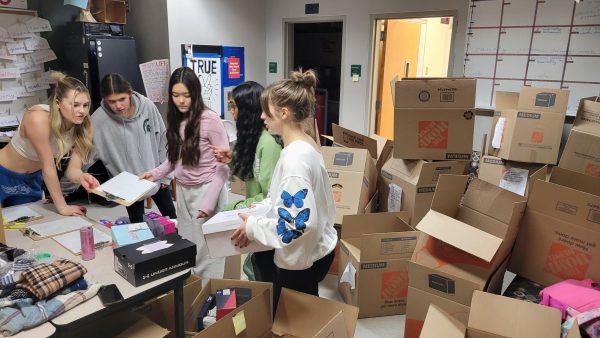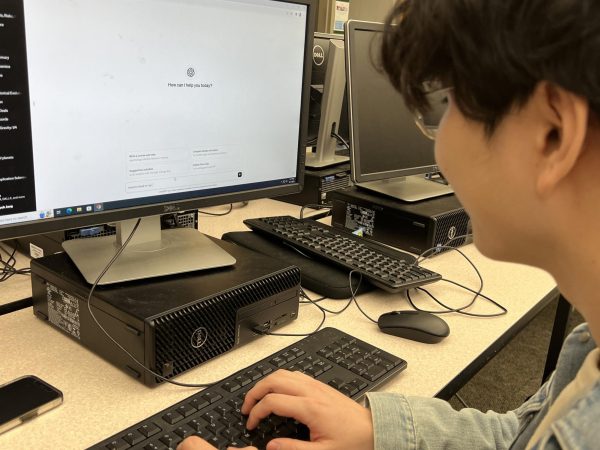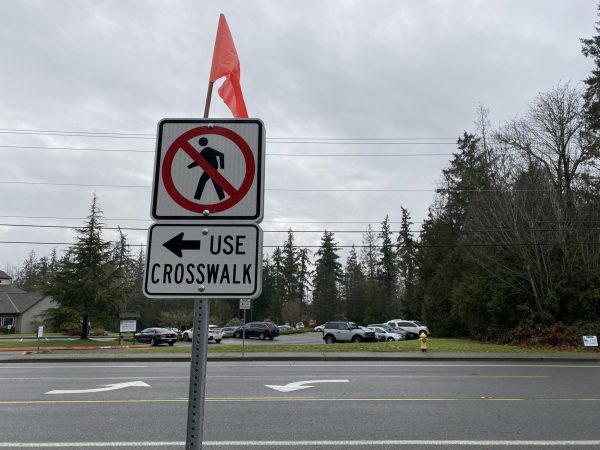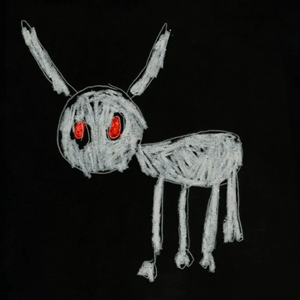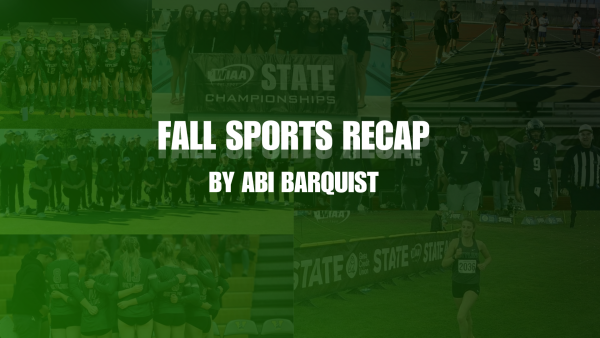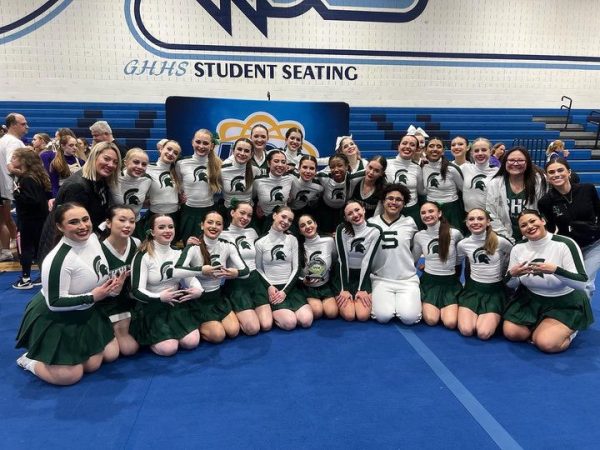NDDA Month Raises Awareness for Developmental Disabilities
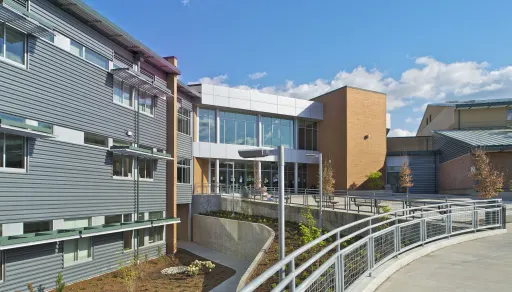
May 12, 2022
The National Developmental Disabilities Awareness (NDDA) month is celebrated each year in March with the purpose of raising awareness of developmental disabilities.While integrating LRC students into the studentbody is not always easy, one student is attempting to bridge the disconnection by establishing the Social Lunches program.
Anushka Saxena, a junior at Skyline, sees the issue of isolation between Skyline students and LRC kids, so she started the “Social Lunch” program with the purpose of building the connection and interaction with them in the school community.
“I realize that the LRC table is really far away from the rest of the table groups, they are sort of isolated,” Anushka said. “ I think, as a result, a lot of kids during lunchtime don’t even really pay attention to them, they don’t really care.”
In order to fix the issue and bring change, her goal is to see more students sit with them, or at least interact with them during lunch.
“During lunchtime, I want to encourage people just to say hi, introduce yourself, talk to them, be friendly, because what they want inside is just a friend who can talk and connect with.” She continued. “They are just kids like us, and they have similar interests and it’s just good to talk to them and make them feel included as well.
The disconnection is mainly caused by the stereotypes and lack of recognization of the abilities that developmental disabilities have. As people are celebrating NDDA month, it is really important for people to have a correct point of view about the word “disability.”
When Anushka first started this program, she found out that interacting with the LRC kids give her a whole new perspective about developmental disabilities and it has also changed her own life attitude.
“When I was first starting out this program, I have been sitting with these kids every day. At first, they were really happy when I was saying hi to them because usually a lot of people don’t,” she said. “One day, one of the girls asked me to show her a song, I showed her, and she got so excited after seeing the video and started dancing and singing.”
Since that day, the girl has been asking Anushka to show her the same funny video every day over and over, she reacts as if she saw it for the first time, she was really excited and reacts as if she saw it for the first time. This makes Anushka thinks deeply.
“It just makes me realize that something we take so granted can be such an important thing for them, It brings so much happiness to her, just to see this silly little video every day.” She continued. “Despite having a disability, these kids are so happy and so cheerful with such a positive attitude, having this kind of interaction makes me feel like I should also be positive too.”
Anushka’s story with her social lunch program brings a new perspective towards the deveolpmental disabled group that usually people easily missed.
Milicent Mackonya, the special education teacher at Skyline High School recognizes the LRC students as the students with different abilities.
“At Skyline, we have a student who is non-verbal but uses an AAC device and gave a presentation,” Ms. Mackonya said. “To me, they don’t mean disabled. They mean they have different abilities, they have strength.”
Prior to the 19th century, developmentally disabled people were treated violently and brutally, they lived in poor and unclean environments, and many of them were even carted off and dropped in another town.
However, as the sense of equality grew, more people recognized the issue and actively advocated for demanding equal treatment, equal access, and equal opportunities for people with disabilities. In 1987, President Ronald Reagan recognized NDDA month as a time to raise awareness of the need and potential of developmentally disabled people by providing the opportunities they need in order to live productively just like everyone else.
Even though the NDDA month is passing through, the acts of raising awareness and building the connections for the developmentally disabled groups should never end.
“When I moved to this country, I decided to do special education. Because of the country I came from, individuals with disabilities are not valued,” Ms. Mackonya said. “Just letting it be well-known that there are some individuals who have different abilities is important, the more you advocate, the more chance of equal opportunities of the individuals with disabilities with have.”
For more information about the Social Lunch program or any questions related to it, please reach out to Anushka Saxena: [email protected].
If you are interested in Peer Tutoring & Teaching Assistance or generally volunteering for the LRC students, please reach out to the special education teacher Ms. Mackonya: [email protected].

